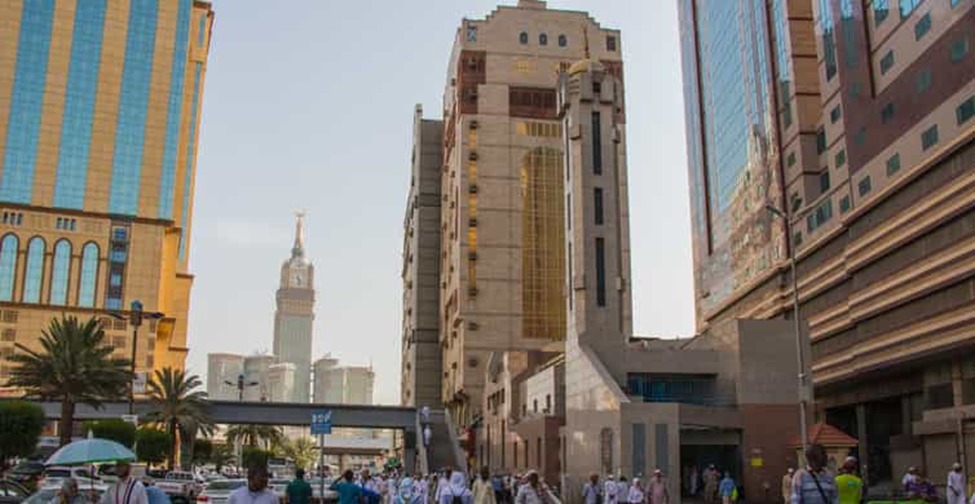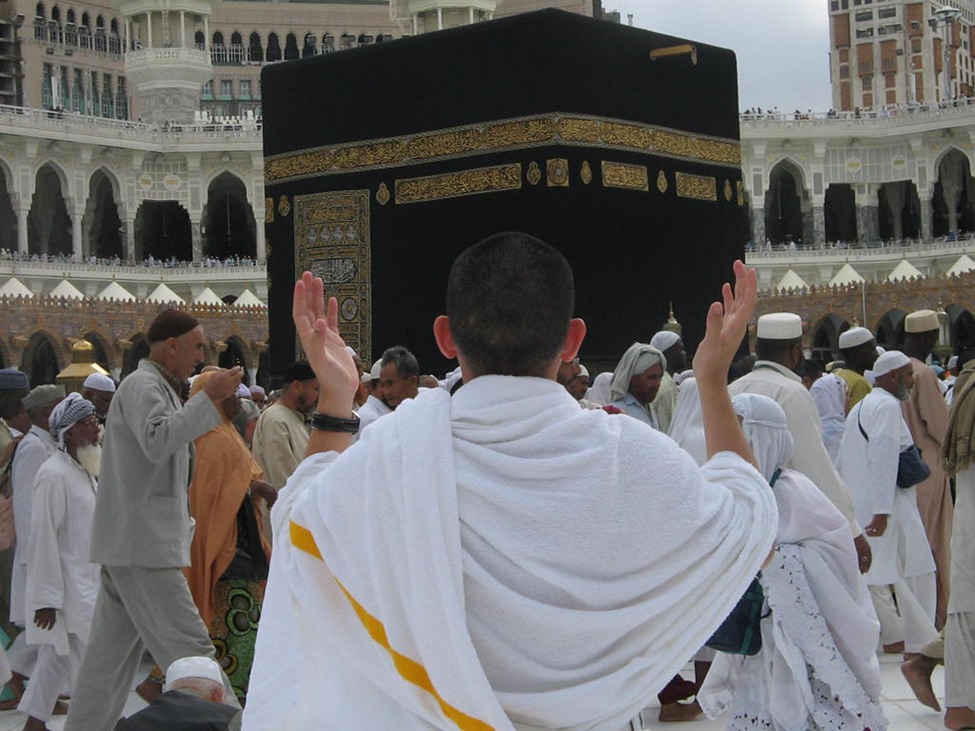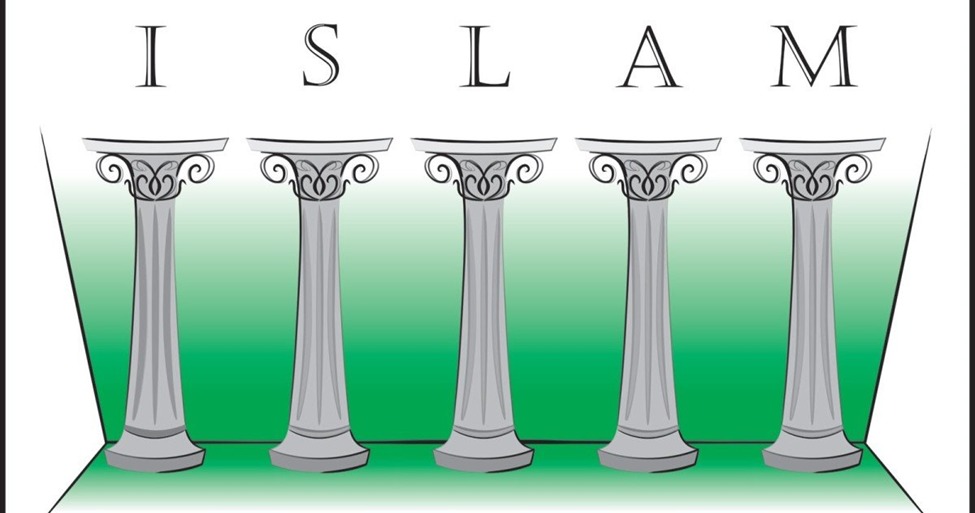Discover The Stories Of Masjid Al-Jinn

Most people think of Al-Masjid al-Haram and the Kaaba as what defines Makkah. While the wonders attract some, the main reason so many visit is to honor its strong place in Islamic history and belief. In addition to its spiritual importance, many people visit for its mysteries, long history and unusual tales. I will help you get a clear picture of Masjid Al-Jinn which is important in the Islamic tradition and close to the Quran and I will explain why visiting it during Hajj or Umrah is valuable. Umrah Lodges will help you if you are just beginning to visit umrah or if you wish to know more. After reading, find out below how you can still visit Masjid Al-Jinn if your plan is on a budget. What is Masjid Al-Jinn? One of the most mysterious Islamic sites is called Masjid Al-Jinn or “Masjid Al-Jinn.” Found in Makkah and next to Jannat al-Mu’alla cemetery, the mosque honors an important event that appears in the Quran and Islamic traditions. It is considered to be where a group of Jinn listened to the Quran being recited by the Prophet Muhammad (peace be upon him) and became Muslims. What matters most about this mosque is the divinely inspired connection between the Prophet and non-human beings which reflects the universal teachings of Islam. People who come to Masjid Al-Jinn for worship often find it quite spiritual and fascinating, as it helps them feel a link to the Islamic history the site is connected to. A Quranic Connection at Masjid Al-Jinn There is an important part of the Quran that tells about Masjid Al-Jinn’s history. Islamic tradition mentions that this mosque is where the Prophet Muhammad (peace and blessings upon him) was reading from the Quran late at night. A number of Jinn (supernatural beings from smokeless fire) heard the verses and were deeply influenced by them. When they opted for Islam, they declared loyalty to the Prophet and started to preach the teachings to their people. A detailed account of this incident is found in Surah Al-Jinn (Chapter of the Jinn) in the Quran. The chapter kicks off with the Jinn discussing how impressive and transforming the Quran is: Say, [O Muhammad], “I have learned that some of the jinn listened in and declared, “Indeed, we heard a wonderful Qur’an.” (Quran 72:1) Visiting Masjid Al-Jinn allows pilgrims to reflect on this profound moment when the Quran resonated even with beings made of fire. It is a reminder of the Quran’s universal guidance, capable of impacting all of Allah’s creations. Why Visit Masjid Al-Jinn? Spiritual Significance and Architecture Spiritual Significance History plays an important role in any visit to Makkah. Along with its legendary atmosphere, Masjid Al-Jinn represents the openness of Islam. This mosque shows us that the Quran connects all people and creations under the guidance of Allah. Praying in these areas makes it easy to feel the history of Islam and the worldwide influence of the Quran. Architectural Beauty Though not grand like Al-Masjid Al-Haram, Masjid Al-Jinn impresses visitors with how simple and peaceful it is. A sense of silent grace links the mosque’s minimal layout to how its commemoration of divine messages feels. The mosque is always open for everyone which allows pilgrims to include it in their Hajj and Umrah journeys. Masjid Al-Jinn in Islamic Traditions The tale of Masjid Al-Jinn appears in the Quran as well as in hadiths (reports about what the Prophet Muhammad (PBUH) said and did). They show God appointing the Prophet as a messenger for all creation, not just for mankind. To many research groups, the history of this mosque teaches about the duties of believers to spread Islam. Visitors are encouraged by the teachings at this place to reflect on how Allah’s sayings are for all people. It prompts people to act with more mercy and inclusivity whenever they communicate with others. Visiting Masjid Al-Jinn is especially valuable to pilgrims because it shows history and offers spiritual insight. Tips for Visiting Masjid Al-Jinn If you’re planning a visit to Masjid Al-Jinn during your Umrah or Hajj pilgrimage, here are some tips to ensure a meaningful experience: Why Choose Umrah Lodges to Visit Masjid Al-Jinn? At Umrah Lodges, we’re committed to making your spiritual journey seamless and enriching. Our cheap Umrah packages provide a range of options designed to suit your budget while ensuring all your needs are covered. From comfortable accommodations to guided visits to historic sites like Masjid Al-Jinn, we aim to enhance every aspect of your trip. Experience Makkah like never before with expertly curated pilgrim services. Discover Spirituality Beyond Your Imagination It reflects the Quran’s strong message that Islam is needed in every place. Whenever you read the stories from Surah Al-Jinn or visit the site where the Jinn made their promise, every believer should feel those feelings. Umrah Lodges gives you personal packages to help you become more spiritual on your trip to Mecca. Why wait? Get started with organizing your Umrah right now to visit Masjid Al-Jinn.
A Journey Through the Kaaba’s History: From Origins to the Black Stone and Kiswah

A Timeless Symbol of Faith and Devotion The Kaaba is one of the most sacred and iconic buildings in the world. Located in the center of Masjid al-Haram in Mecca, Saudi Arabia, it is of immense importance to more than two billion Muslims around the world. Described as the “House of Allah,” the Kaaba is a focal point of Islamic devotion and history, with all Muslims facing it during their daily prayers. This blog will reveal the interesting history of the holy Kaaba, delving into its origin, association with the Black Stone, the history of its Kiswah (the ceremonial cloth that envelops it), and more. Whether you’re an aficionado of the Kaaba or learning its history for the first time, this guide gives you a deep insight into the spiritual and architectural heritage of the Kaaba. And if you’re organizing your next Hajj or Umrah pilgrimage, Umrah Lodges will make your spiritual journey comfortable and hassle-free. The Origin of the Kaaba and Its Historical Roots The History of Kaaba’s stretches thousands of years back and is closely associated with Islamic tradition and Abrahamic teachings. Muslims are of the view that the Kaaba was initially constructed by Prophet Ibrahim (Abraham) and his son Ismail (Ishmael) as a sanctuary for the worship of one God (Allah). The Quran beautifully mentions the building of the Kaaba in Surah Al-Baqarah (2:127): “And [mention, O Muhammad], when Abraham and Ishmael raised the foundations of the House [saying]: ‘Our Lord, accept [this] from us. Indeed, You are the Hearing, the Knowing.’” Much earlier than Prophet Muhammad’s era, the Kaaba was a place of worship for several tribes in Arabia. But during Jahiliyyah (the Age of Ignorance), the building became engulfed by idols and utilized for idolatrous purposes. Prophet Muhammad, after reoccupying Mecca, drove the idols out of the Kaaba and made it once again the global emblem of monotheism. Historical transformations The Kaaba has been renovated several times in history to maintain its integrity and cater to the growing number of pilgrims. The cuboid shape and size of today (roughly 15 meters high) have resulted from a series of reconstructions, with restoration highlights under such leaders as Abdullah ibn Zubayr and prominent Islamic dynasties. The long-standing tradition of the Kaaba’s origins continues to inspire Muslims everywhere, bringing together faith, history, and tradition in striking harmony. The Black Stone’s Sacred Place in the Kaaba’s Structure One of the distinguishing features of the Kaaba that make it unique is the Black Stone (Hajr al-Aswad), which resides in its eastern corner. This dark-coloured, extremely ancient stone carries immense significance in Islamic rituals. The Black Stone is believed by Muslims to have come from paradise, and although its origins are debated among scholars, there is a claim by tradition that it was bestowed upon Prophet Ibrahim by Angel Jibreel (Gabriel) at the time of the building of the Kaaba. Hajj or Umrah pilgrims try to visit and kiss or touch the Black Stone during their Tawaf (circumambulation of the Kaaba). For most, this is a symbolic reaffirmation of their covenant with Allah, stressing submission and unity. Despite centuries of damage to the Black Stone, its pieces are still encased in a silver frame, maintaining its sanctity for generations to come. If you’re booking a pilgrimage to Mecca, Umrah Lodges provides excellent accommodation services to help make your experience both spiritually enriching and hassle-free. The Kiswah: A Symbol of Reverence and Beauty Yet another symbol of the Kaaba is its Kiswah, or the beautiful black fabric with golden and silver Quranic verses embroidered upon it, which covers the building. New Kiswah is put every year during Hajj time, and the Kiswah signifies reverence, honor, and regard for the House of Allah. The practice of draping the Kaaba in an ornamented cloth started ages ago, with the first reference to a Kiswah found in Yemenite dynasties in pre-Islamic times. Different Islamic dynasties and leaders have, over centuries, added to the making and donation of the Kiswah, indicative of how much reverence the Kaaba is held for in Muslim society. It is now beautifully constructed by a professional team of workers in Mecca. The Kiswah is made of pure silk, with inscriptions from the Quran painstakingly hand-stitched to uphold the highest level of craftsmanship. The replacement of the Kiswah annually continues to be one of the most breathtaking experiences observed during the pilgrimage. Architect of Unity and Devotion The significance of the Kaaba is more than its physical form. It is the center of Islamic rituals and a source of unity among Muslims. Daily, Muslims from across the globe turn their faces towards the Kaaba during their prayers, a ritual that emphasizes oneness, equality, and devotion. For the pilgrims going to Hajj or Umrah, the experience of standing before the Kaaba is an intensely spiritual one, representing respect for Allah and renewed identification with the elements of humility and submission. The Kaaba creates within Muslims a very strong sense of unity, bridging borders, languages, and cultures. Umrah Lodges and Your Spiritual Journey When organizing your pilgrimage to Mecca to be able to feel the sacredness of the Kaaba first-hand, rely on Umrah Lodges to make your spiritual experience seamless and unforgettable. With cozy housing, tailored services, and skilled assistance, Umrah Lodges maintains your priority as prayer and worship. From booking comfortable accommodations close to Masjid al-Haram to offering special Hajj and Umrah packages, Umrah Lodges is proud to be a part of your lifetime spiritual journey. Preserving the Legacy of the Kaaba The Kaaba’s remarkable history is a testament to the long-lasting strength of faith, devotion, and solidarity in the Muslim world. Its history—from its beginnings with Prophet Ibrahim to its status as the Qibla (direction of prayer) for Muslims today—is a source of inspiration and awe. The revered Black Stone, the beautiful Kiswah, and the age-old practice of pilgrimage bind Muslims to a deep history filled with piety. If you are planning Hajj or Umrah, do not merely go to the
The Five Pillars of Islam – Order, Importance & Facts

Islam encompasses more than religious devotion since it represents a lifestyle practiced by 1.9 billion people worldwide. Over 1.9 billion Muslims worldwide practice a total lifestyle that constitutes their religion. Muslims perform the Five Pillars of Islam which provide fundamental instructions for religious faith and practice. As a system they establish the path by which a Muslim follows righteousness through complete devotion to Allah with compassion toward others and essential links to their community. The following piece examines the sequence and significance coupled with distinctive details of the Five Pillars of Islam. The blog will offer comprehensive analysis of how these practices shape Muslim identity together with spiritual aspects. Muhammad’s path emphasizes these teachings so Umrah Lodges maintains its reputation for making Muslim religious trips more meaningful as they develop their faith through spiritual guidance along with complete devotion. Shahada (Faith) – The First Pillar of Islam Belief in this first Islamic pillar called “Shahada” means testifying about two fundamental elements. Islam’s essential foundation teaches that Allah is one and that Muhammad (peace be upon him) is His messenger. The Muslim declaration “La ilaha illallah, Muhammadur Rasulullah” means “Allah is the only God and Muhammad is Allah’s final messenger.” By reciting Shahada with genuine understanding Muslims both accept the Islamic faith and submit their personal will to Allah. The declaration works beyond merely spoken words; This belief affects every life dimension profoundly. Our staff at Umrah Lodges acknowledge the essential position of Shahada for Muslim unity during their pilgrimage. Our services were created to help you strengthen your bond with this foundation belief so you experience meaningful spiritual reflection in each step of your journey. Salah (Prayer) – The Second Pillar of Islam Salah functions as the second pillar in Islam that requires Muslims to perform their five mandatory prayers at particular moments during the day. Through continuous prayer Muslims establish ongoing devotion to Allah throughout each day of their lives. The schedule of Muslim daily prayers begins when believers perform Fajr before moving to Dhuhr and finishes with Asr then continues through Maghrib before reaching Isha. The Muslims use Wudu to cleanse themselves before each prayer. Salah transcends standard religious practice. Short daily time segments serve two purposes for Muslims by encouraging contemplation and appreciation before they submit humbly to Allah’s presence. Salah helps believers reorient their life’s direction by showing them how fleeting human life actually is. Through Quran recitation and prostration Muslims exhibit their ultimate reverence for Allah during Salah practices. Muslim travelers uphold their deep religious connection at holy locations through congregation-based prayers while performing their Umrah rituals. Guests can access prayer places together with a focus on Salah services at Umrah Lodges as our services maintain travelers’ spiritual devotion throughout their holy journey. Zakat (Charity) – The Third Pillar of Islam As part of the Muslim religion’s three foundational obligations Zakat requires Muslims to distribute 2.5% saved wealth annually to support the needy while establishing equality within their community. Muslim believers are required to distribute 2.5 percent of their increased wealth each year to specific needy groups notably divorced women and young people without family support. By following religious principles Muslims can make charitable donations that strengthen both their spiritual condition and their financial capacity. Muslims learn about Allah’s gift of wealth through Zakat practice so they become divine guardians through their sharing of blessings. When Muslims give Zakat they eliminate personal selfishness which leads to strengthened community bonds between members who feel compassion toward those in need. Our Umrah Lodges function based on Zakat principles as we work alongside charitable foundations to direct Umrah visitors’ monetary contributions to support deserving communities. When pilgrims undertake spiritual journeys they gain several advantages because the charitable opportunities they participate in serve to make community recommendations more applicable. Sawm (Fasting) – The Fourth Pillar of Islam Muslims are supposed to fast throughout the holy month of Ramadan which is considered the fourth pillar of Islam. Muslims practice fasting throughout daylight hours and avoid both food and drink as well as tobacco and sexual relations. Sawm includes more than physical abstention because it teaches Muslims to strengthen their self-discipline and develop gratitude while cleansing their spirit. By engaging in daily fasting Muslims develop empathy toward people who lack resources. The religious requirement leads individuals to shift their contemplation from physical requirements to engage in spiritual development and prayerful self-reflection. The holy month of Ramadan combines important values about patience and humility to deliver an unforgettable experience that showcases Allah’s mercy and blessings. Throughout their performance of Umrah during Ramadan numerous Muslims report having profound spiritual experiences of awakening. Our team at Umrah Lodges supports guests by creating arrangements which foster religious devotion throughout their spiritual journey. Hajj (Pilgrimage) – The Fifth Pillar of Islam Muslims are required by the fifth pillar of Hajj to make a pilgrimage to Mecca at least one time in their lives when they are conscious and prosperous enough to travel. The Islamic month of Dhul-Hijjah welcomes annual Hajj pilgrims who need to perform rituals like Tawaf followed by standing in prayer on Arafat’s plains. All of Hajj demonstrates Muslims’ complete dedication to faith together with their absolute unity and their submission to Allah. People from all parts of Muslim society unite during Hajj without social differences while wearing basic white robes which erase differences of economic status and position and loyalty to a nation. Islam demonstrates its universal appeal through multiple gatherings which unite all Muslims as spiritual brothers. Our dedicated team at Umrah Lodges generates industry-leading service solutions for visitors to their religious ceremonies. Our travel packages and memorable guides create personal connections to Allah during your rituals while delivering exceptional comfort throughout Hajj or Umrah. Why the Five Pillars of Islam Matter The Five Pillars of Islam establish three essential dimensions that make them vital to Muslim belief: unity with Allah and spiritual depth alongside personal and community balance. The five pillars function as a synchronized system to produce an integrated
